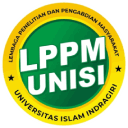Dinamika Politik Identitas di Indonesia: Permasalahan, Peluang, dan Jalan ke Depan
Abstract
Identity politics is politics that is used to emphasize the distinction between one group and another. Indonesia is a country with a multidimensional social structure. Therefore, identity politics is easy to develop and is at the same time more open in the spirit of decentralization. This research aims to analyze the electoral laws related to identity politics and the urgency to change them in the context of a better identity politics in the future. The search method used is an informative law search using data collection techniques from literature searches. The results of the investigation show that the 2017 Regional Election Law Number 7, Chapter 1, Article 1, Article 35 is an activity to convince voters by providing their vision, mission, program, and image. In fact, political elites today prefer identity politics rather than advertising according to the rules. The urgency of changing the Election Law to regulate identity politics is that the poor legal culture has made identity politics destructive, causing racism, discrimination, and even SARA. SARA violates the 1945 Constitution, especially Article 29(2) on tolerance. SARA can even make it difficult to implement Indonesia's national motto "Bhinneka Tunggal Ika". Therefore, identity politics needs to be regulated more comprehensively so as not to cause destructive impacts that could lead to the breakup of the Indonesian state. Article 7, Article 280 Ayat 1 Law Year 2017, Letter B, actually emphasizes that it is prohibited to carry out activities that endanger the integrity of the state unity issue within the State of the Republic of Indonesia. However, the regulation fails to prevent the emergence of identity politics that is destructive due to other factors such as law enforcement and public justice issues










